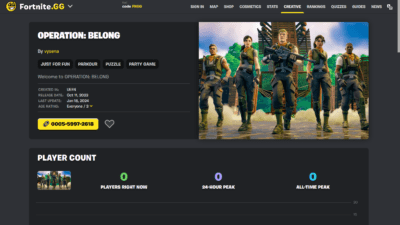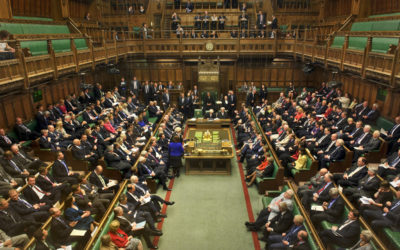Youngest Army recruits pay highest price in Afghanistan, new report shows
ForcesWatch and Child Soldiers International press release
The risk of fatality in Afghanistan for recruits who enlisted into the British Army aged 16 and completed training has been twice as high as it has for those enlisting at 18 or above, according to a study published today on behalf of human rights groups Child Soldiers International and ForcesWatch. The authors believe the increased risk reflects the disproportionately high number of 16 year olds who join front-line Infantry roles.
Soldiers who enlisted at 16 have faced twice the risk of death in Afghanistan
Read the ForcesWatch response to the Ministry of Defence’s statement about this report
The risk of fatality in Afghanistan for recruits who enlisted into the British Army aged 16 and completed training has been twice as high as it has for those enlisting at 18 or above, according to a study published today on behalf of human rights groups Child Soldiers International and ForcesWatch.
The authors believe the increased risk reflects the disproportionately high number of 16 year olds who join front-line Infantry roles. This is the result of recruitment policies which drive young people with limited academic qualifications into the Army’s most dangerous roles. Those who enlist at 16 are effectively barred from entering many of the less risky support or technical roles due to lack of qualifications. Another probable contributing factor is the longer average career length of 16 year old recruits who successfully complete training, leading to more tours of duty in Afghanistan when compared with adult recruits.
The study analyses data on British Army fatalities in the Afghanistan war and compares this with published recruitment data over a ten-year period. It concludes that:
- Although fatalities have been uncommon among British forces in Afghanistan, soldiers who enlisted at age 16 and subsequently completed training have been approximately twice as likely to die there as those enlisting at age 18 or above. (Odds ratio 1.92, 95% CI 1.39-2.66, p<0.001, n=209)
- Since higher fatality rates are correlated with higher rates of non-fatal physical injuries and psychiatric casualties, these other war-zone hazards are also likely to form part of the increased risk for soldiers who enlisted at 16.
- The relatively higher risk to those who enlist as minors applies despite the prohibition on deployment to war zones until they are 18 years of age.“We knew that Army recruitment policy channelled minors into the most dangerous roles, but these findings on the increased risk faced by those enlisting at 16 are striking. The higher risk begins the day you’re signed into a combat regiment, not the moment you land in Afghanistan”, said David Gee of Forces Watch, one of the authors of the report.
“The Army will always struggle to recruit for the most dangerous jobs, but currently the burden of risk lies heaviest on the youngest, most disadvantaged and psychologically vulnerable recruits”, he added.
Richard Clarke, Director of Child Soldiers International, said: “Actively recruiting 16 year olds into the Army’s most dangerous positions – while downplaying the risks in its recruitment materials – is misleading and harmful. The MoD should be encouraging young people to stay in education until 18, when a fuller range of Army careers will become available to them, and only then take an informed decision about whether to enlist.”
“It is important that parents are aware of the increased risks their children would face by enlisting into the Infantry when compared with other parts of armed forces,” he added.
The large majority of countries worldwide now recruit only adults aged 18 or above into their armed forces. The UK is the only member of the European Union and only Permanent Member of the UN Security Council still recruiting from age 16. A recent national ICM poll found that 70 per cent of respondents who expressed a view thought the minimum army recruitment age should be at least 18 (1).
In July, the Defence Select Committee called on the MoD to provide written justification for its continued reliance on minors to fill Army roles and recommended it conduct a cost-benefit analysis of the policy. These recommendations are the latest in a series from parliamentary and UN committees which have criticised the continuing recruitment of minors.
ENDS
Gee, D and Goodman, A. (2013). ‘Young age at Army enlistment is associated with greater war zone risks’. (London: ForcesWatch and Child Soldiers International)
Notes for Editors:
- The study, ‘Young age at Army enlistment is associated with greater war zone risks’, is the result of six months’ unique research and analysis by an expert in military recruitment policies and an expert in the statistical analysis of public health issues. The data is drawn from MoD records.
- A new report by ForcesWatch on the mental health risks to armed forces personnel, and the youngest in particular, is forthcoming. Please contact office@forceswatch.net for further information.
- The Defence Select Committee (2005, 2013), the Joint Committee on Human Rights (2009, 2011) and the UN Committee on the Rights of the Child (2002, 2008) have all called on the MoD to review the minimum recruitment age with a view to raising it to 18 years. These recommendations have yet to be acted upon or receive a substantive response from the Ministry of Defence.
- Child Soldiers International is an international human rights research and advocacy organisation seeking to end the military recruitment and the use in hostilities, in any capacity, of any person under the age of 18. www.child-soldiers.org
- ForcesWatch is a British-based campaigning organisation which scrutinises the armed forces’ recruitment of young people. www.forceswatch.net
1. ICM interviewed a random sample of 2,018 adults in Great Britain between 28 March and 1 April 2013. Surveys were conducted across the country and the results were weighted to the profile of all adults. Full data sheet of responses is available here.
See more: legislation & policy, recruitment age, risks, ForcesWatch










